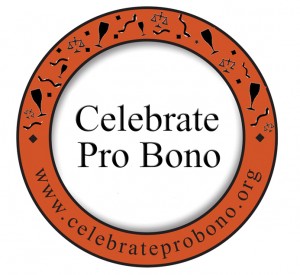I’ve run a lot of ads in my lifetime. Big ads, small ads, and everything in between. And direct mail. And with every ad or campaign, there’s only one thing I wanted to know: the rate of response.
How many calls, opt-ins, or return cards? How many leads or appointments or new clients?
Response is the only that thing that matters.
You need to know which publication or web site is producing more response. Which headline, which offer, which key words.
You have to track response and then test one variable against others. It’s the only way to know if you’re wasting money and it’s the simplest way to increase your profits. One ad, letter, or web page can sometimes pull fifty times more response than another. FIFTY TIMES! Wouldn’t you want to know which one?
“What about “branding”–getting your name out there, isn’t that worthwhile?” Sure, but while you’re doing that, why not also get a response?
So, if you have a web page you need to track your stats. Google’s analytics is free and provides lots of information. If you do any offline advertising you need to put codes in your ads (and articles) so you can see which ad (article) is pulling best. At the very least, ask people who call your office how they heard about you.
One more thing. Track the time you spend networking offline and on social media. If you’ve been attending a group’s meetings for several months and you’re not getting any clients, growing your list or seeing any kind of response you can measure, don’t continue. The same for social media platforms.
You might not know as quickly as you might with an ad. I’ve run ads one time and pulled them when the response wasn’t there. Building relationships and getting referrals almost always take longer. But eventually, you’ll know. If nothing is coming from your networking with group A, either change what your doing or move to group B.










Smart marketing by a smart lawyer
Yesterday, I was interviewed live via a new video broadcast service, Spreecast. The interviewer was my friend and fellow attorney, Mitch Jackson. The subject was using Evernote in a law practice and my Evernote for Lawyers ebook. You can watch the replay here.
In the interview, you’ll note my comment to Mitch that his Spreecasts are smart marketing on his part because it allows him to network not only with the experts he interviews but with a large number of attorneys and allied professionals who come to watch. It positions him as a leader and gets his name in front of a lot of people who can either directly refer clients to him or who can lead him to others who can.
Although these Spreecasts are new, I know Mitch has for many years done a great job of networking in this fashion, promoting others’ law practices, books and events to his large network. I also know he gets a lot of referral business.
Smart marketing, and you can do the same thing. It’s called being a connector.
Being a connector can not only help you grow your practice, it is also a great vehicle for learning. I’m sure Mitch will tell you in reading the blogs and books of the experts he interviews, he learns the best ideas and latest techniques, which help him become a better lawyer and a better marketer.
To become a connector you need two things.
First, you need a platform. This can be a blog, a Facebook or LinkedIn Group, a newsletter, your own Spreecast channel, or a local breakfast group. This is where you match up content (writing, speaking, interviews) with your audience. You are the organizer, the master of ceremonies, the interviewer, the publisher. Everything goes through you.
The platform is easy. Just pick something and plant a flag.
The second thing you need might be a little more difficult. It’s not something you sign up for, it’s something you must have within you. To be effective as a connector, you need to truly enjoy helping others. It’s true, the more value you create for others, the more you promote them and champion their practice or product, the more you will benefit. But you must be willing to help others without any agenda, other than the pleasure you get from seeing others succeed.
Mitch has a series of great interviews lined up. Follow his Spreecast Lawyers Group (channel) and invite your friends.